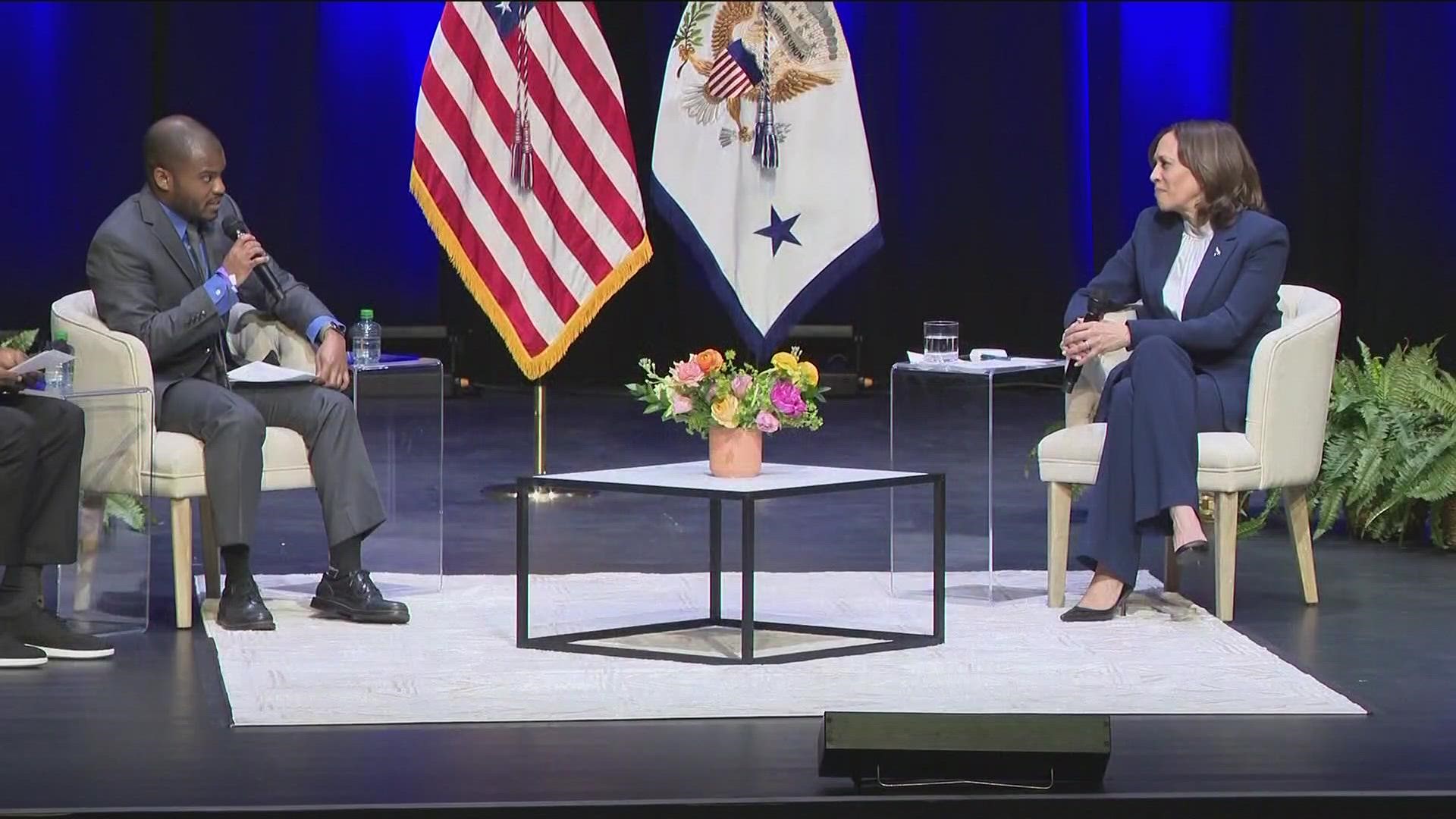ATLANTA — Vice President Kamala Harris has now been added to the distinguished list of dignitaries to visit Georgia Tech.
On Wednesday, Harris spoke to students, school officials and residents about the role the state of Georgia and the city of Atlanta will play in addressing climate change.
“This is the planet we've got. It is a precious place. It is a place that we have a responsibility for taking care of,” Vice President Harris said during a moderated conversation focusing on the administration’s investments and actions to combat the climate crisis and the road ahead.
The comments came with a call to action to metro Atlanta residents to help address climate change.
“We are asking the communities that are affected to lead and not telling them what’s we're going to do for them,” Harris added.
According to the White House, the vice president's trip to Atlanta is part of the Biden Administration’s effort to amplify the president’s state of the union address. She addressed concerns about droughts, alternative forms of energy and clean water
“Through the Bipartisan Infrastructure Law, through the Inflation Reduction Act, we're looking at at least a trillion dollars to hit the streets of America to address some of these issue,” Harris said.
>>Watch the full press conference here:
Harris touched on topics including droughts, alternative forms of energy, clean water, and how the environmental concerns can impact a person’s health. These are issues residents, students, and former Georgia Democratic gubernatorial candidate Stacey Abrams said is vital to the country.
"We’re excited to have Vice President Harris here in part because we had such a strong conversation yesterday with the President of the United States with their focus on energy, their focus on investing in not only in our economy, but the people in the state of Georgia,” Abrams said.
Marshall Shepherd, a UGA professor and one of the event moderators echoed a similar sentiment.
“To see how that vice president came to Atlanta today to talk about these issues, and that how it impacts neighborhoods all across our region, that’s really exciting to me as a scientist.”

